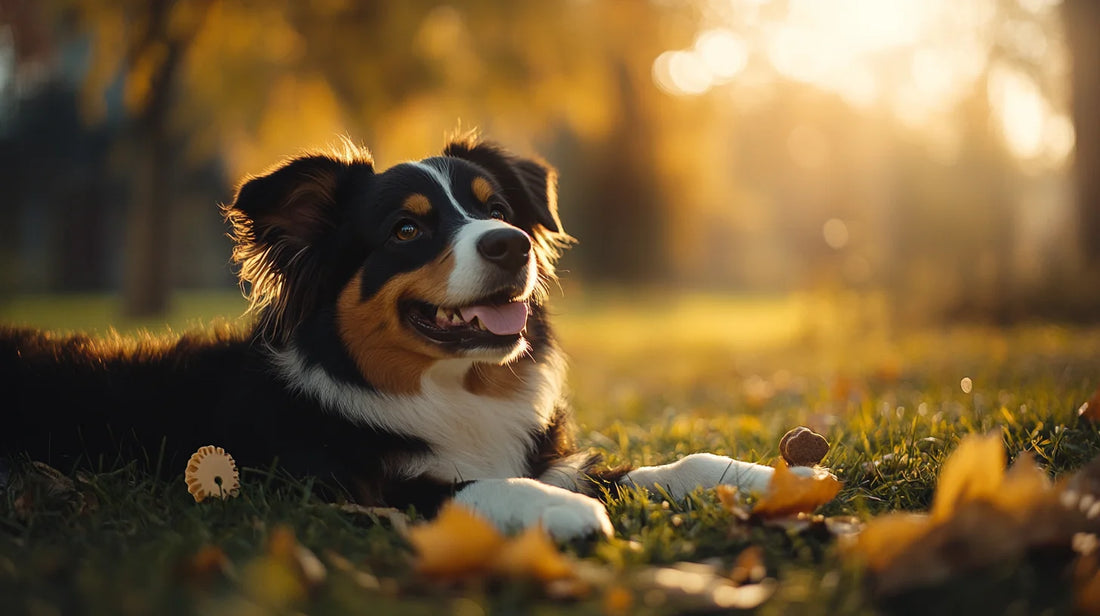
Are cow ears good for my dog?
Share
Table of Contents
If you're wondering 'Are cow ears good for my dog?' The answer is Yes, cow ears are a popular natural chew for dogs, offering a safer, low-fat alternative to rawhide and other processed chews. Many dogs love the flavor and texture, and these chews provide both entertainment and health benefits. Here’s a detailed look at the benefits of cow ears, their safety, and tips for choosing the best cow ears for your dog.
1. Benefits of Cow Ears for Dogs
Cow ears can offer several advantages:
- Low in Fat: Unlike some other natural chews (such as pig ears), cow ears are low in fat, making them a good option for dogs on a calorie-controlled diet or those prone to weight gain.
- Natural Source of Protein: Cow ears are rich in protein, supporting muscle maintenance and growth.
- Improves Dental Health: The chewing action helps remove plaque and tartar buildup, promoting better oral health.
- Digestibility: Cow ears are made of cartilage, which is easily digestible for most dogs and less likely to cause digestive upset compared to rawhide.
According to PetMD, chews like cow ears can help maintain dental health and reduce boredom, especially for dogs with a strong chewing instinct.

2. Are Cow Ears Safe for Dogs?
Cow ears are generally safe for most dogs and tend to be less likely to splinter compared to other chews, such as bones or cooked chews. However, there are some precautions to keep in mind:
- Choose Natural, Untreated Cow Ears: Look for cow ears that are natural and free of added preservatives, artificial flavors, or chemicals.
- Avoid for Aggressive Chewers: While cow ears are durable, very aggressive chewers might be able to break off larger pieces that could pose a choking risk. Always supervise your dog when giving them any new chew.
- Size Appropriateness: Cow ears are suitable for medium to large breeds, but smaller dogs or puppies should be given smaller pieces or cow ear strips to avoid choking.
3. How to Choose the Best Cow Ears for Your Dog
When selecting cow ears, keep the following tips in mind:
- Sourcing: Look for cow ears from reputable companies that source their products from trusted suppliers. Ears sourced from grass-fed, free-range cattle may have higher-quality nutrients.
- Natural vs. Flavored: While flavored options (like smoked or BBQ) may appeal to your dog, it’s best to stick with natural, unflavored cow ears to avoid unnecessary additives.
- Odor-Free Options: Some cow ears are naturally odor-free, while others may have a slight odor. If your dog chews indoors and you’re sensitive to smells, look for odor-free options.
- Raw vs. Dehydrated: Cow ears can be sold raw, dehydrated, or baked. Dehydrated or baked options tend to be more shelf-stable and hygienic.
4. How Often Can Dogs Have Cow Ears?
Cow ears are best given as an occasional treat. For most dogs, once or twice a week is safe and enjoyable. Due to the protein content, they should be considered an addition to a balanced diet, not a meal replacement.
For smaller dogs, one ear might be too much, so cutting it into smaller pieces can help avoid overfeeding.
5. Benefits of Cow Ears vs. Other Chews
- Compared to Pig Ears: Cow ears are lower in fat, making them a healthier choice for dogs who need fewer calories.
- Compared to Rawhide: Cow ears are generally more digestible than rawhide, posing a lower risk of intestinal blockages.
- Compared to Bully Sticks: Bully sticks are high in protein but are often more calorie-dense. Cow ears offer a lighter chew with a similar texture and dental benefits.
6. Frequently Asked Questions (FAQs)
Q: Can puppies chew on cow ears?
A: Yes, puppies can have cow ears, but they should be introduced slowly and always under supervision. Puppies with small mouths may need smaller, softer chews initially.
Q: Are cow ears safe for senior dogs?
A: Yes, cow ears are suitable for senior dogs, but monitor them closely to ensure they can chew comfortably. Softened cow ears or smaller pieces may be better for older dogs with sensitive teeth.
Q: Do cow ears have an odor?
A: Some cow ears have a slight natural odor, but many are processed to be odor-free. Check the packaging or product description if odor is a concern.
Q: Are cow ears better than rawhide?
A: Yes, cow ears are generally more digestible and safer than rawhide, which can sometimes cause choking or intestinal blockages.
Q: Do cow ears help with teething?
A: Yes, cow ears can be a helpful and safe chew for teething puppies. They provide the chewing resistance puppies need to relieve teething discomfort.
7. Conclusion
Cow ears can be a safe, nutritious, and satisfying treat for most dogs. They’re a great alternative to rawhide or other high-fat chews and offer benefits for dental health, digestion, and mental stimulation. Choose high-quality, natural cow ears, supervise your dog during chewing, and enjoy the peace of mind that comes with providing a healthy, low-fat treat that your dog will love.
Sources:
- PetMD: https://www.petmd.com
- American Kennel Club (AKC): https://www.akc.org
For more articles on what your dog can eat, check out our blog! Discover safe, nutritious treats, feeding tips, and expert advice for a healthy, happy pup.
